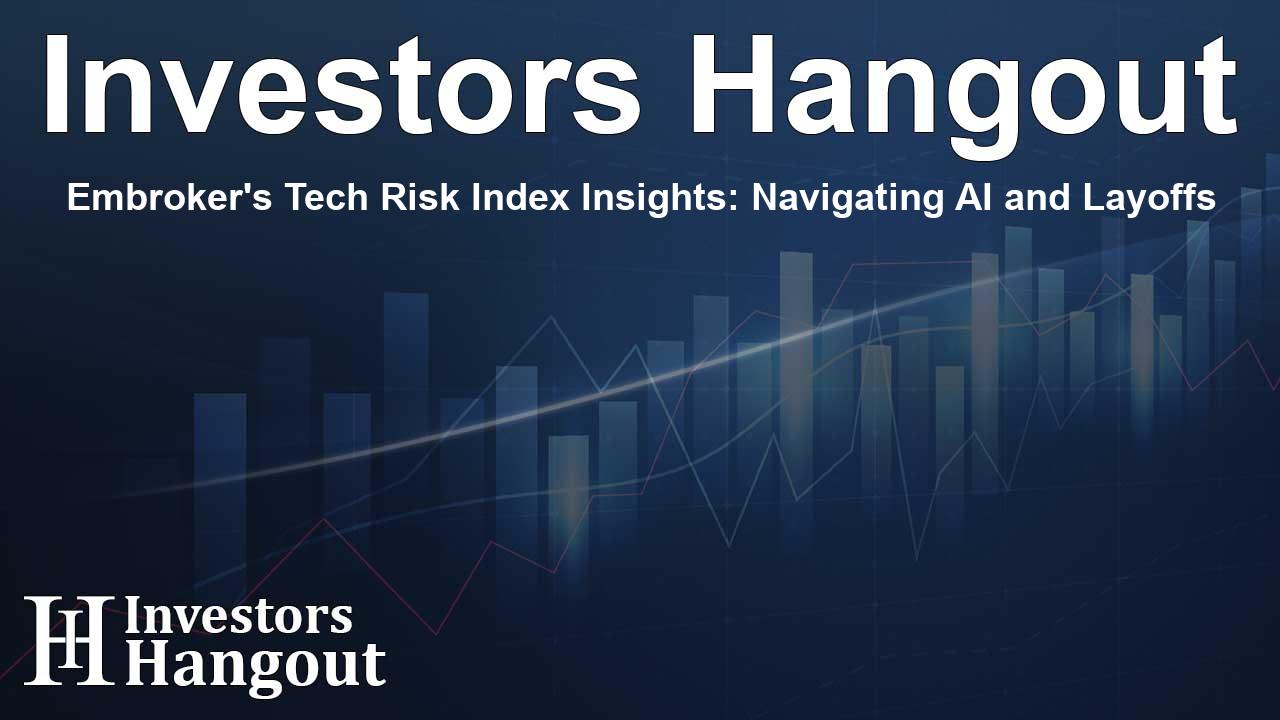Embroker's Tech Risk Index Insights: Navigating AI and Layoffs

Exploring the Future of Tech Risk Management
In the constantly evolving landscape of technology, a new report from Embroker has shed light on the challenges that tech companies face as they navigate the complexities of integrating artificial intelligence (AI) into their operations. The study reveals intricate details about how businesses manage risk, employee dynamics, and financial pressures in this rapidly advancing era.
AI's Role and Companies' Hesitance
The findings of the report indicate that 79% of technology firms express caution regarding AI use. Interestingly, despite this hesitance, a substantial 69% are already utilizing some form of this revolutionary technology. This paradox leads to critical questions: what are the underlying fears, and how do companies manage them?
Understanding the Risks of AI Integration
AI is being embraced across multiple functions—from customer service automation to data analysis and content creation. However, concerns linger about potential risks associated with its implementation. Companies identified threats like data privacy (42%), over-reliance on AI tools (41%), and security risks including cyberattacks (30%) as significant worries. This indicates a growing awareness of both the opportunities and dangers that AI brings to the industry.
Cyber Insurance: An Essential Shield
Gene Linetsky, CTO at Embroker, emphasizes the necessity of Cyber / Tech Errors and Omissions insurance, stating it is crucial for businesses leveraging technology amidst evolving threats from cybercriminals. The market is seeing an increased recognition that comprehensive insurance coverage is no longer a luxury but a fundamental requirement for protecting against data breaches and other vulnerabilities.
Shifts in Priorities Amid Rising Layoffs
With the tech industry experiencing monumental layoffs—over 60,000 as reported in recent months—companies are still focusing on their workforce. The report from Embroker highlights a concerning trend where 44% of respondents cited employee retention as a significant challenge.
Maintaining Talent Amidst Uncertainty
Despite the undeniable turbulence within the industry, firms are actively seeking to recruit talent and prioritize their existing employees. A notable 39% recognize hiring and employee retention as pivotal concerns, equating it to their essential infrastructure and growth objectives. This shift reveals a commitment to resilience and strategic planning in light of economic pressures.
Leadership Perspectives on Risk
Ben Jennings, CEO at Embroker, notes that the landscape has never been more fraught with challenges. Factors such as inflation and the rising cost of operations compel leaders to be astute in risk management. The proactive approaches adopted by companies that understand their vulnerabilities will better position them to thrive in a post-pandemic era focused on technology and innovation.
Financial Outlook: Mixed Signals
Despite these challenges, optimism is not entirely absent. Data shows that 82% of tech companies remain hopeful for the future, buoyed by promising financial performance indications in earlier months. With market adaptations underway, almost half of those surveyed believe new product launches will help carry them through the remaining year.
Adapting to Economic Pressures
Nonetheless, financial challenges loom large, with 59% highlighting increased costs driven by inflation and rising interest rates. This concern has surged each year, indicating economic pressures will persist. Shifts in funding priorities illustrate a need for tech firms to refine their financial strategies effectively.
Conclusion: Preparing for Tomorrow's Tech Landscape
The comprehensive insights from Embroker's report highlight the resilience and adaptability of tech companies faced with daunting tasks—from incorporating AI to managing layoffs. The keen understanding of risks and strategic insurance coverage is vital as both opportunities and challenges undoubtedly lie ahead for the tech industry.
Frequently Asked Questions
What is Embroker's Tech Risk Index?
The Tech Risk Index is a report by Embroker that analyzes the risks faced by tech companies, especially in relation to AI integration and operational costs.
How do tech companies feel about using AI?
Many tech companies express caution about AI, with a notable percentage already utilizing it while still considering the associated risks.
Why is cyber insurance important for tech companies?
Cyber insurance provides necessary protection against potential data breaches and cyber threats, ensuring businesses can recover effectively from incidents.
What are the main concerns of tech companies in 2024?
In 2024, tech companies are primarily concerned about employee retention, inflation, and managing the costs of operations, alongside risks from new technologies.
How optimistic are tech companies about the future?
Despite economic challenges, a majority of tech companies maintain optimism, looking ahead to potential product launches and improving financial conditions.
About The Author
Contact Henry Turner privately here. Or send an email with ATTN: Henry Turner as the subject to contact@investorshangout.com.
About Investors Hangout
Investors Hangout is a leading online stock forum for financial discussion and learning, offering a wide range of free tools and resources. It draws in traders of all levels, who exchange market knowledge, investigate trading tactics, and keep an eye on industry developments in real time. Featuring financial articles, stock message boards, quotes, charts, company profiles, and live news updates. Through cooperative learning and a wealth of informational resources, it helps users from novices creating their first portfolios to experts honing their techniques. Join Investors Hangout today: https://investorshangout.com/
The content of this article is based on factual, publicly available information and does not represent legal, financial, or investment advice. Investors Hangout does not offer financial advice, and the author is not a licensed financial advisor. Consult a qualified advisor before making any financial or investment decisions based on this article. This article should not be considered advice to purchase, sell, or hold any securities or other investments. If any of the material provided here is inaccurate, please contact us for corrections.
